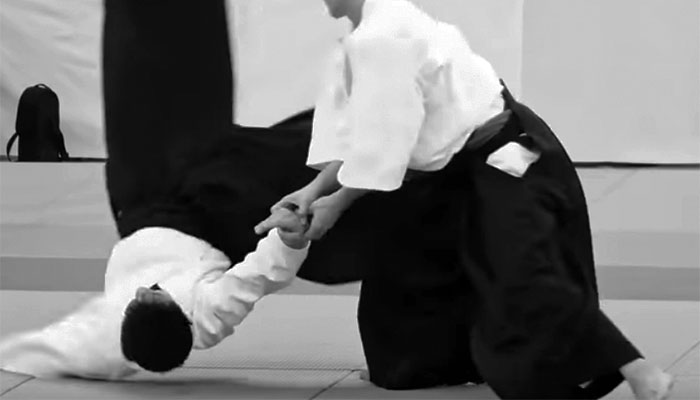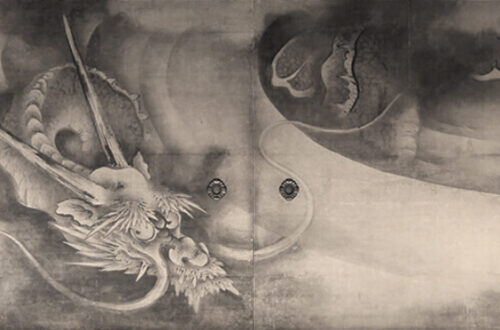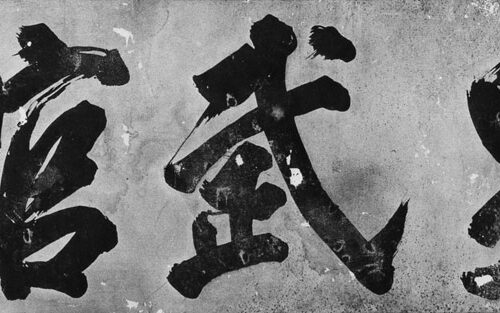
Zanshin and Mushin – The Two Martial ‘Hearts’ of Aikido
Zanshin 残心 is a crucial concept in Japanese martial arts. Literally, Zan 残 means “remaining” or “lingering,” and Shin 心 means “heart,” but it is more accurately understood as “mind” in this context. In Asian culture, Shin extends beyond the physical heart, encompassing both the mind and spirit, blending cognitive and emotional experiences. The mind and heart are seen as deeply interconnected. Thus, Zanshin refers to a state of awareness, alertness, and presence of mind, particularly after executing a technique, even when the opponent appears to have lost the ability to continue.
In practice, Zanshin manifests differently across martial arts. For example, in Kyudo 弓道 (Japanese archery), it is the state of maintaining posture even after releasing the arrow, with the eyes still focusing on the target where the arrow hits. In Aikido, Zanshin refers to the posture of remaining aware of the uke (attacker) even after being thrown, in preparation for any potential counterattack. More broadly, it means that the nage (defender) is constantly prepared, staying alert to the surroundings even after the immediate threat has passed. Zanshin is considered essential for effective martial arts practice, as it enables quick and appropriate responses to any changes in the situation.

Staying alert under all circumstances in Aikido
Mushin 無心 is another key concept, meaning “no mind” or “mindless.” While it may seem contradictory to Zanshin, it complements it. In Zen teachings, Mushin refers to a state of being free from distractions, ego, or preconceived notions. In martial arts, it means acting instinctively and naturally, without hesitation or overthinking. This state allows a practitioner to perform techniques based purely on past training and muscle memory, executing movements automatically without the interference of conscious thought.
Mushin is often considered an advanced stage in martial arts, typically reached after years of dedicated practice.
Morihei Ueshiba considered both Zanshin and Mushin critical components of Aikido practice. Here are some of his quotes from the books The Art of Peace and Budo Teachings of the Founder of Aikido:
- “Zanshin means to have complete awareness and to remain fully prepared at all times. It is a state of relaxed alertness that allows you to respond immediately to any situation. When you have achieved this state, you will be able to deal with any attack or threat without hesitation or fear.”
- “The mind must always be in a state of preparedness, yet never burdened. This state of mind is called Mushin, meaning ‘no mind.’ It is a state of mind in which the mind is free from all distractions and can act without hesitation.”
- “Zanshin is the state of the person who remains alert even after striking an opponent. You must never forget that there may be another enemy waiting to attack you.”
- “Mushin is a state of mind in which there is no fixed thought. You must be able to act without hesitation or attachment to any particular technique.”
Zanshin and Mushin are both essential concepts in Japanese martial arts. Together, they represent complementary mental states. Zanshin enhances awareness and readiness, while Mushin allows instinctual, fluid action. Both concepts help martial artists achieve a balance of focus, clarity, and natural action, enabling them to effectively navigate any situation.
Author’s Note: We appreciate your readership! This article serves as a preliminary introduction to the subject matter. While we aim for accuracy, we cannot guarantee the content’s precision and it may contain elements of speculation. We strongly advise you to pursue additional research if this topic piques your interest. Begin your AikidoDiscovery adventure! 🙂




